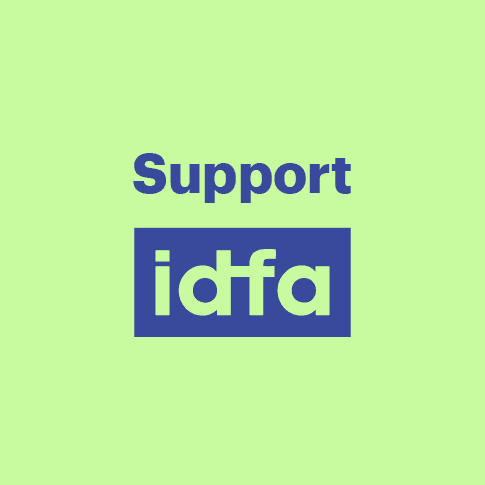Social responsibility
As part of our ongoing commitment to delivering a diverse and inclusive festival experience, IDFA aims to offer audiences and industry professionals a wide variety of perspectives, introduce them to underrepresented subjects, and provide in-depth context to political and social themes. IDFA fundamentally believes that diverse perspectives and an inclusive approach will lead to an enrichment of the documentary genre and an enhanced source of information and reflections for everybody: audiences, professionals, and partners.
Program
To offer a more diverse and inclusive program, the research area has been expanded in the past year. Programmers have inquired into lesser represented film cultures, by visiting (online) festivals in non-Western countries, to expand on its networks and contacts in new regions. Scouts (associate programmers) have also worked to diversify their networks. In 2019 and 2020, the percentage of non-Western films increased from 25% to 40%. In 2021, 35% of the selected films were reported to be non-Western films, and that percentage was 33% in 2022. The aim for the upcoming period is to keep this percentage stable and/or increase it where possible.
Non-Western projects represented 50% of the submitted projects at IDFA Forum in 2021, and 34% of the Docs for Sales films included in the market. IDFA additionally strives to have 50% of the films and new media projects included in the festival program be by women filmmakers—2021 reported a decrease with 39%, and 2022 noted a slight increase to 43% women filmmakers. IDFA Forum reported 48% women filmmakers and 55% women producers. Docs for Sale reported 36% women filmmakers and 36% women producers.
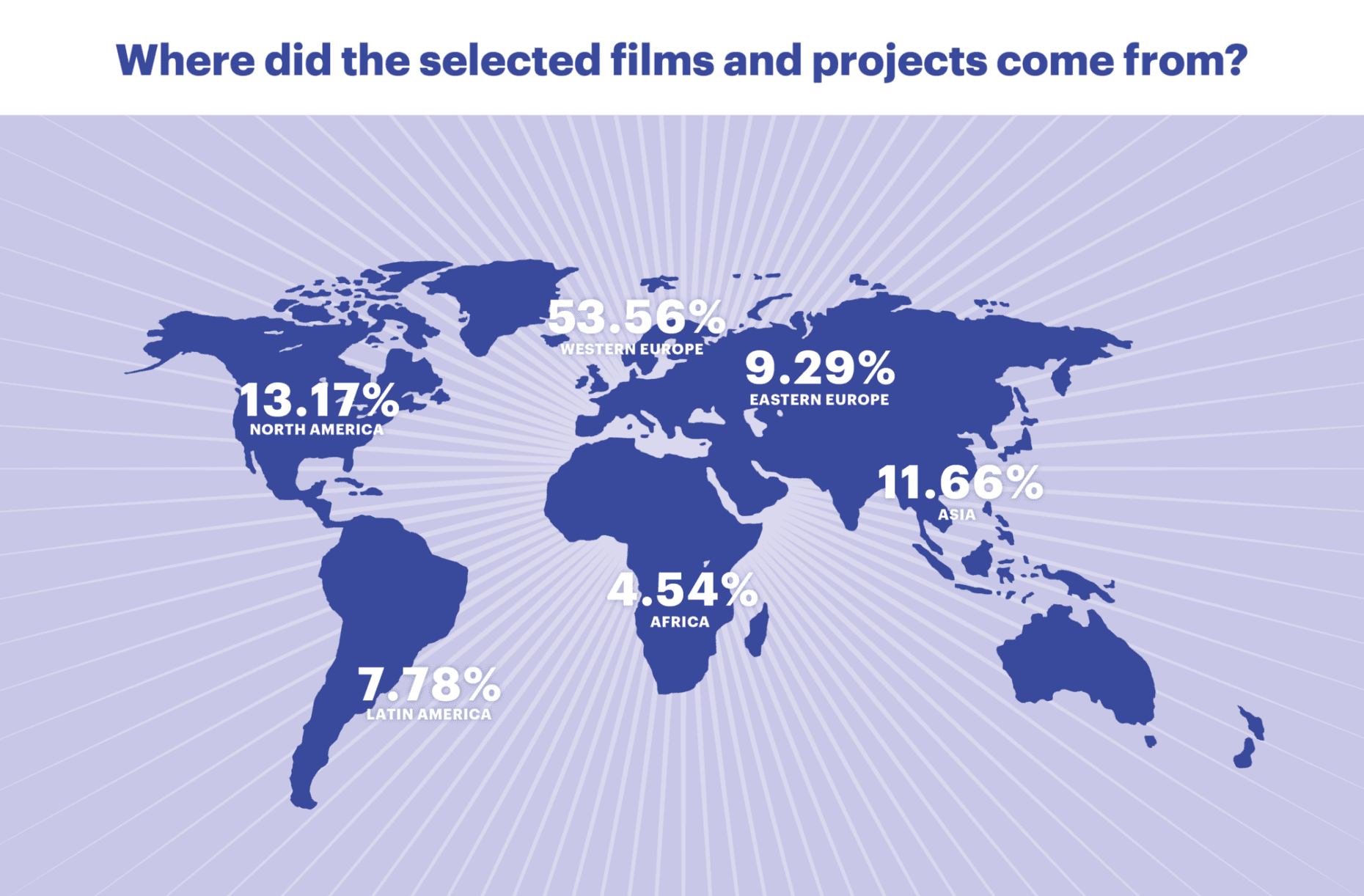
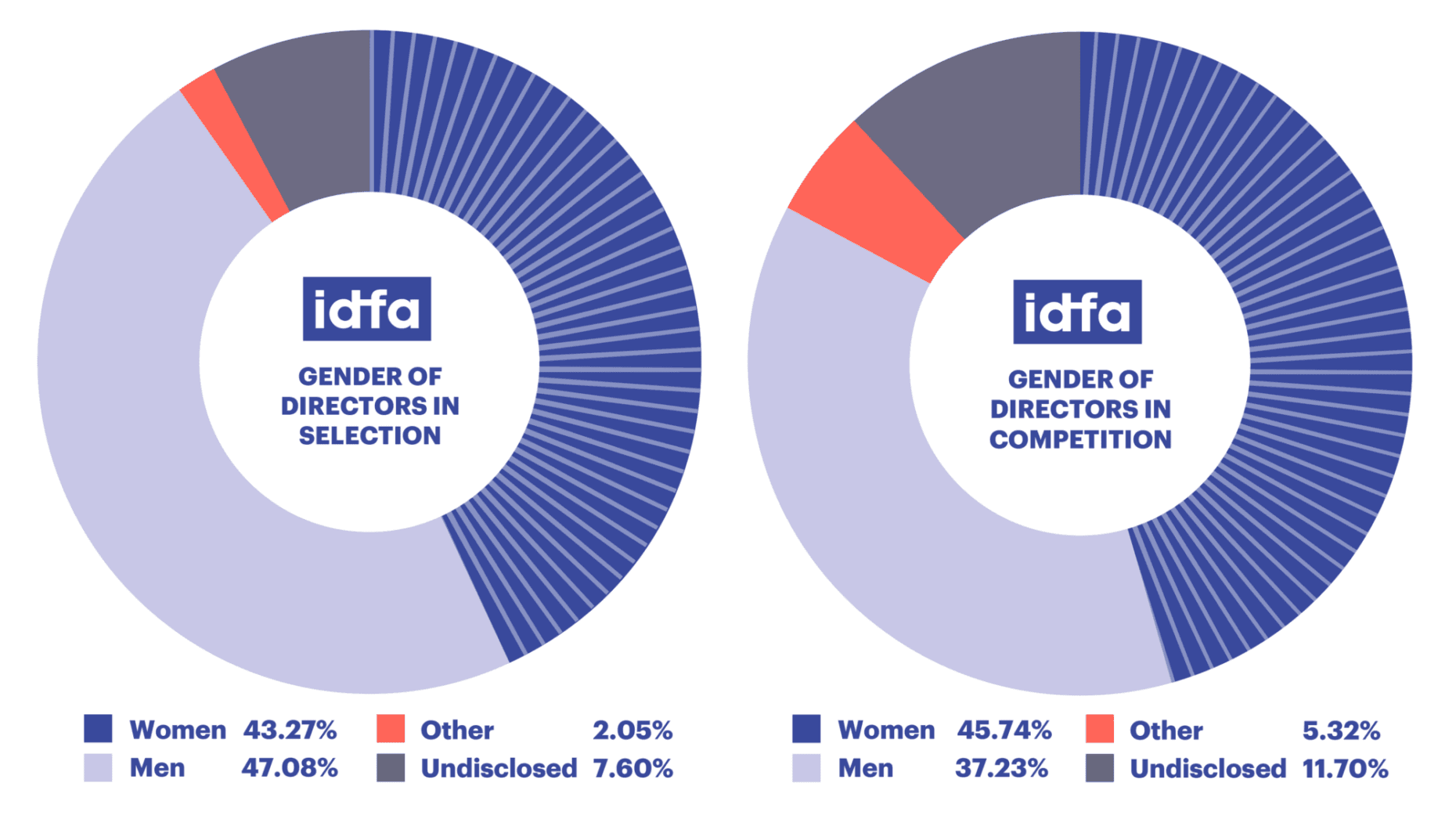
Organization
IDFA strives to be a diverse and inclusive organization. The HR Manager has dedicated specific attention to inclusion and the well-being of employees. When filling new vacancies, the organization pays explicit attention to diversity. To this end, IDFA has been advised on drafting inclusive job vacancy texts, developed a style guide for inclusive language use, and works with an introduction program. A survey was conducted in 2019 to map out how diverse the festival team is and whether employees feel involved, welcome, and safe. Key points for consideration were developed based on these results, including recruitment targets and adjustments to the introduction program.
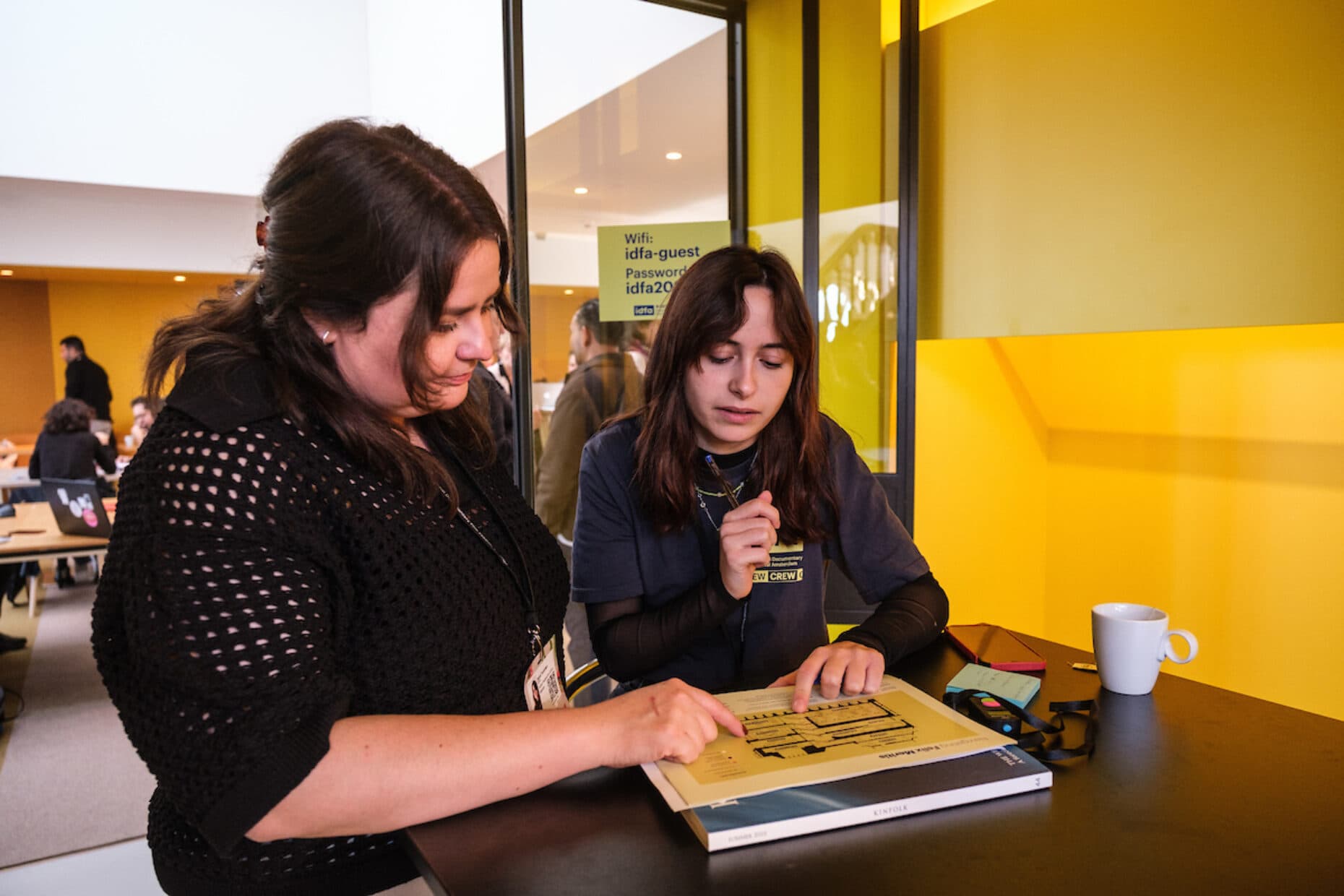
Staff and crew are there for you, providing you with information about the festival program and the locations. (Coen Dijkstra)
Accessibility
IDFA is working to remove several access barriers in our programming and services, to be as accessible as possible to all members of the audiences and our professional guests. Location accessibility of all festival locations is communicated clearly on the website, including how to reserve spaces for wheelchairs at screenings. In addition, the website specifies which cinemas offer screenings for visitors who are Deaf or hard of hearing, the selection of sensory-friendly screenings, and overviews of films with closed captions or audio descriptions, (English) subtitles, or are without dialogue.
The online film program provided various options for subtitling and closed captioning. The festival additionally offered a selection of films with audio descriptions for visitors who are blind or visually impaired, and offered both a selection of films with subtitling and live subtitles during a number of Q&As for visitors who are Deaf or hard of hearing.
This edition, the festival provided additional wheelchair-accessible VR experiences at De Brakke Grond, as Arti et Amicitiae (DocLab’s VR Cinema this edition) is not a wheelchair-accessible location. The industry program also featured an Industry Talk about accessibility of industry events within the documentary film sector. The results of the Talk were published by international entertainment magazine Variety.
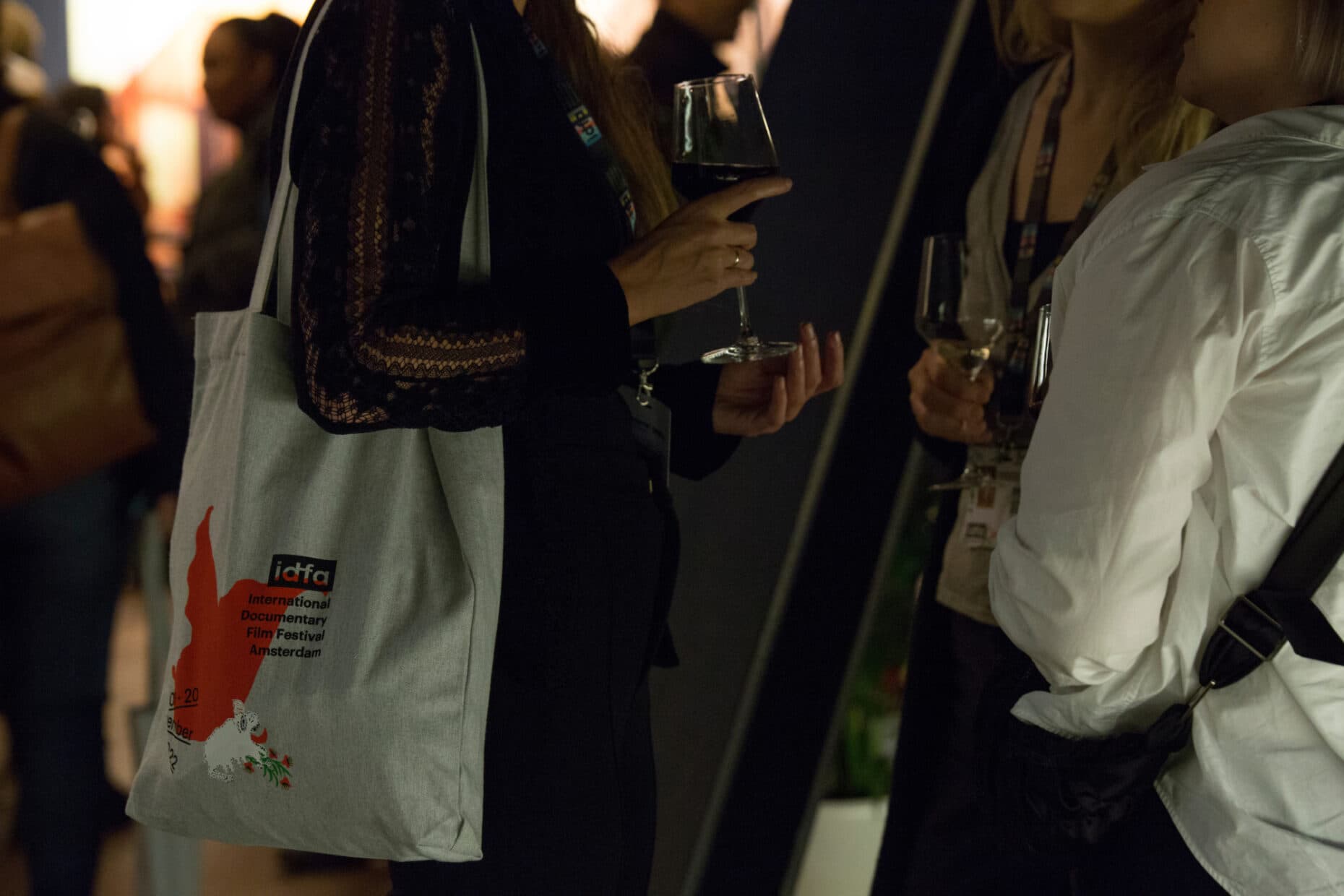
Sustainable produced guest bags of recycled material (Karlijn van Diepen)
Sustainability
Next to presenting films that provide insight into how we can live in a sustainable and environmentally friendly way, IDFA is committed to reducing our CO2 footprint and shaping a more sustainable industry. This includes taking steps to mitigate our environmental impact by reducing greenhouse gas emissions, combating other forms of pollutions, and improving our resource efficiency.
Most festival locations are located within walking distance of each other or can be accessed using public transport. The same is true for the hotels used by professional guests and staff. The result of these measures is that all visitors, filmmakers, other guests, and everyone involved in the organization of the festival can attend IDFA without using a car. In addition, IDFA presents a selection of films as hybrid screenings, which audiences can watch online—enabling audiences across the entire country to enjoy creative documentary films without traveling great distances.
IDFA proactively promotes alternative modes of travel and only compensates flight tickets for professional guests who must travel over 500 kilometers to attend the festival. Train tickets are compensated for professional guests traveling shorter distances. The festival catering, which provides food for all social events and meals for festival staff and volunteers, is vegetarian. Travel during the festival, which includes freight, catering, and people, is done primarily by foot, by (cargo) bicycle, or electric vehicles. During the festival, IDFA provides temporary staff with a bicycle if necessary.
Starting in 2021, IDFA has been working with suppliers who use 100% recycled materials, such as in the production of signage, and green suppliers are selected for printed publications. To minimize the number of printed products, IDFA has offered its festival guides and magazines online since 2020.
IDFA has long-term and extensive collaborations with organizations that actively promote sustainability and environmental awareness, such as Oxfam Novib. A code of ethics has been developed for IDFA's partner strategy. As an overarching commitment, IDFA aims to work exclusively with organizations that prioritize sustainability, environmental goals, and social equity.
In 2022, IDFA made inquiries into green certification. Currently, there is no standard for the certification of (film) festivals in the Netherlands or Europe, making this a complex issue that requires further research and collaboration with other European film festivals. In 2023, IDFA is working on a plan to develop and implement a sustainable approach to festival management of all levels of the organization. A baseline measurement would provide insight into where the most improvement can be made, and attainable implementation goals.
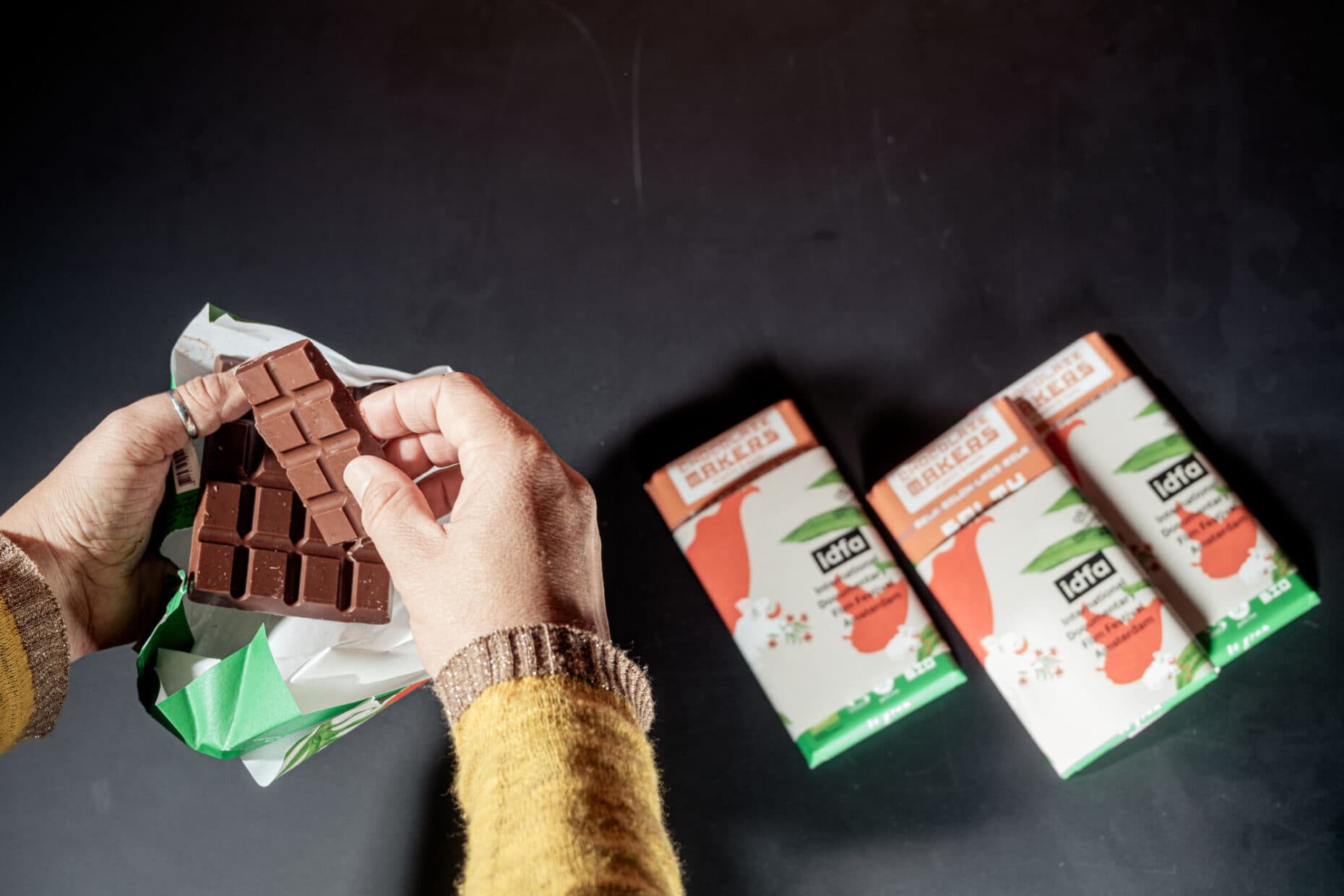
Biologic fairtrade chocolate in IDFA campaign style (Jakob van Vliet)
